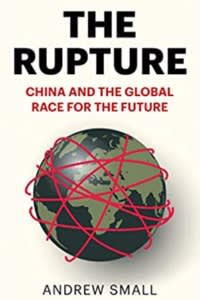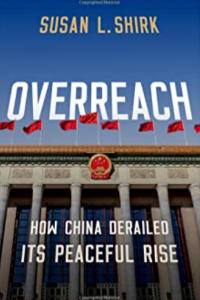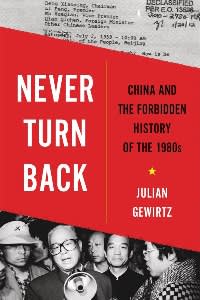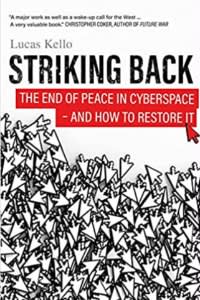From China to cyber house — one of the best new politics books
Russia is the climate and China is the local weather was the formulation adopted by Jeremy Fleming, a senior British intelligence official, to clarify why — even within the midst of a struggle launched by Russia — western safety providers are more and more centered on China.
In a latest speech, Fleming, who heads GCHQ — the department of the British intelligence providers that specialises in cyber house — pointed to Chinese language advances in satellite tv for pc navigation, digital currencies, AI and a variety of different cutting-edge applied sciences. Collectively, these might give China the power to observe and manipulate a lot of the world.
It’s this risk that underpinned the latest American determination to put extreme restrictions on the power of US firms or people, and even overseas firms utilizing American expertise, to work with the Chinese language semiconductor trade. These new measures are so far-reaching that some see them as a declaration of financial struggle on China.

The origins of the transformation within the west’s method to China are defined in Andrew Small’s fast-paced and deeply researched guide The Rupture: China and the Global Race for the Future (Hurst £20). As Small reminds us, simply 4 years in the past the UK was nonetheless aspiring to let Huawei, a Chinese language firm, play a central function within the provision of 5G telecoms to Britain. GCHQ, on the time argued that Huawei’s involvement posed no actual risk to British safety. However, below intense American stress, the British reversed course on Huawei.
The battle over Huawei was a turning level, signalling a a lot more durable and extra united western response to the technological and safety challenges posed by China. The EU and India have additionally just lately taken a significantly extra cautious method to Chinese language expertise. Utilizing his intensive contacts, Small reveals how Beijing’s personal errors have contributed to this backlash, together with China’s dealing with of Covid-19 and its border dispute with India.

It’s tempting to pin the deterioration in China’s political and financial relationship with the west on President Xi Jinping, who has adopted extra aggressive insurance policies and rhetoric, each at house and overseas, since coming to energy in 2012. However, as Susan Shirk reveals in Overreach: How China Derailed Its Peaceful Rise (Oxford College Press £19.99), issues had begun to go bitter, properly earlier than Xi took energy.
In Beijing, simply as in Moscow, the “color revolutions” that shook the previous Soviet bloc from 2003-2005, have been seen as proof of an American conspiracy that would pose a direct risk to the Chinese language and Russian political regimes. The monetary disaster of 2008, which started within the US, then created a way in China that the west was in decline, and subsequently simpler to confront.

The query of when and the way issues went fallacious in China can also be the main target of Julian Gewirtz’s vital new guide, Never Turn Back: China and the Forbidden History of the 1980s (Harvard College Press £26.95/$32.95). As Gewirtz reveals, the “reform and opening” related to Deng Xiaoping led not simply to an financial transformation however to a interval of mental turmoil, by which all kinds of hitherto forbidden concepts have been debated.
At instances, this had its comedian facet. In 1982, the Communist social gathering management was fretting about younger individuals’s newly acquired tastes each for pornography and for the works of Jean-Paul Sartre. What emerged over that decade was a Chinese language model of the glasnost, or openness, that flourished in Mikhail Gorbachev’s Soviet Union. Wan Li, a vice-premier, gave a speech in 1986 arguing: “We must always take away the ban on free expression and encourage the free airing of views.” However that interval of mental freedom was delivered to an abrupt finish with the crushing of the scholar protest motion in Tiananmen Sq. in 1989.
Deng’s embrace of reform and openness by no means prolonged to permitting a problem to the Communist social gathering’s monopoly on energy. Zhao Ziyang, the social gathering’s normal secretary, who additionally performed a key function within the reform drive of the Nineteen Eighties, was extra sympathetic to the scholar motion. He was positioned below home arrest, for the remainder of his life, after the crushing of the Tiananmen motion.
As Gewirtz reveals, even within the Nineteen Eighties, China’s management had an “intensive fixation on superior expertise”. That fixation has now paid off so spectacularly that China is now forward of the west in some key applied sciences, resembling 5G.

A specific focus of western nervousness is cyber house, the place each China and Russia have been energetic in quite a lot of methods, starting from Russia’s hacking and launch of Democratic social gathering inner emails throughout the 2016 US presidential election, to China’s intensive industrial and political espionage.
In his new guide Striking Back: The End of Peace In Cyberspace — And How to Restore It (Yale College Press £20/$28), Lucas Kello of Oxford College argues that western governments have been sluggish to develop new doctrines and types of deterrence to cope with rising anarchy in cyber house. In a piece that’s positive to be carefully studied in western capitals, Kello makes proposals to extend the west’s deterrence energy and restore “peace in cyber house”.
Gideon Rachman is the FT’s chief overseas affairs commentator
Be part of our on-line guide group on Fb at FT Books Café
Source link
